Pakistan
Air pollution cuts 5.3 years from life expectancy in Lahore
Life expectancy in Pakistan could increase by 3.3 years if air pollution levels meet WHO standards
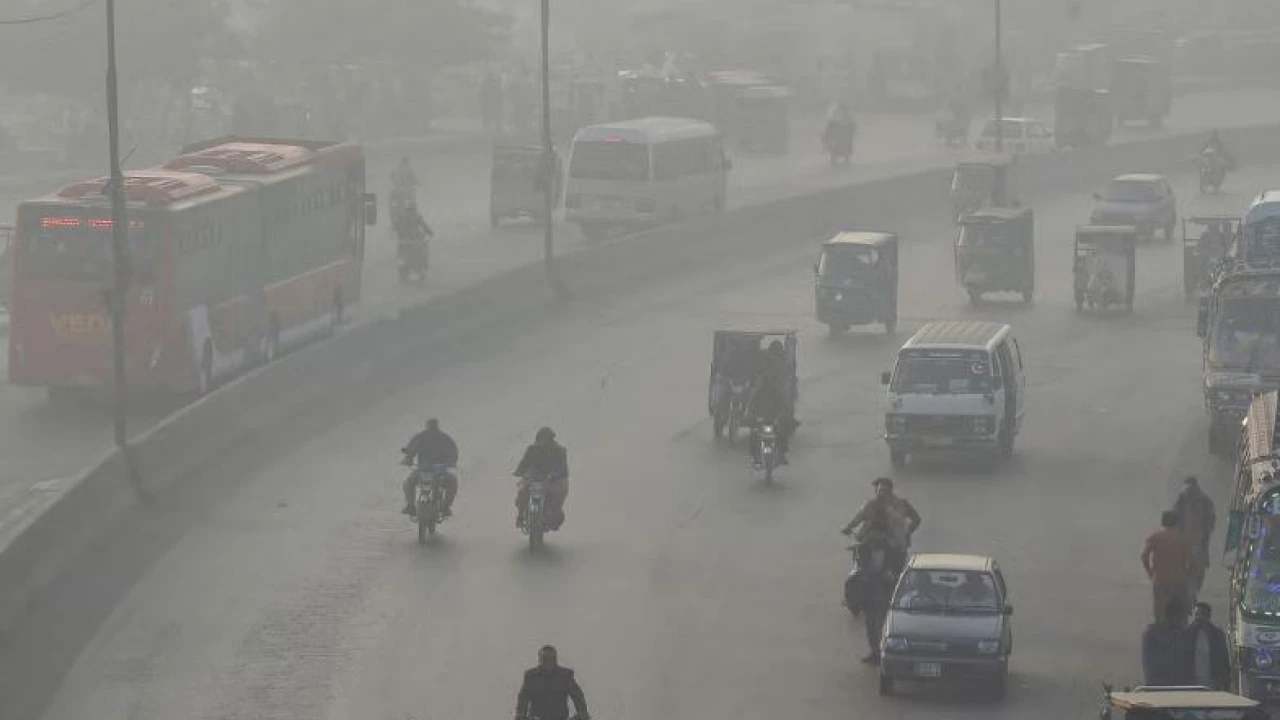
By Samiullah Randhawa
Lahore: In a shocking revelation, the average life expectancy of citizens in Lahore, has been shortened by 5.3 years due to severe air pollution.
This has been revealed in Air Quality Life Index (AQLI)’s latest report, published by the Energy Policy Institute at the University of Chicago (EPIC) on Wednesday.
This report was prepared after analysing the air quality data and records from the year 2022, and highlighted the severe impact of particulate matter (PM2.5) on health, marking it as the most significant threat to life expectancy in Pakistan.
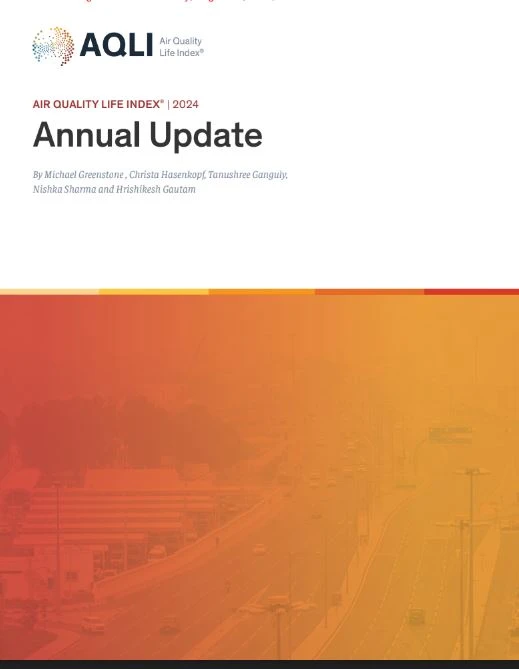
This is pertinent to mention here that the year 2023 remained as the worst in the history of Pakistan when air pollution levels remained high throughout the year.
However, according to the report, during 2022 the air pollution slashed by 3.3 years off the average lifespan of Pakistanis.
The report continued that around 98.4 per cent of Pakistanis living in areas where air pollution exceeds the national air quality standard (NAQS). Besides, NAQS, residents are experiencing air quality levels exceeding the World Health Organization (WHO) guidelines.
Lahore, which is already facing hazardous air quality and frequent smog spells. However, report suggests if pollution level in country is reduced to WHO standards, citizens can gain an average 5.3 years of life.
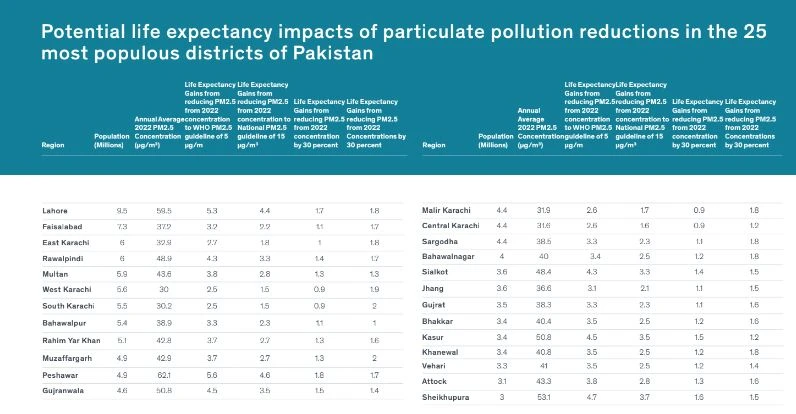
Major cities of Pakistan are also facing the similar miserable situation where residents of Islamabad facing a 4.6 year cut off in their life while citizens in Karachi are facing a 2.6 years reduction in life expectancy.
“Particulate pollution, commonly known as PM, in Pakistan has increased by 35.1 percent during 1998 to 2022. This rise in pollution has further diminished life expectancy by an additional year over the same period,” stated the report.
In provinces like Punjab, Khyber Pakhtunkhwa, and the Islamabad Capital Territory, nearly 70 percent of the population is on track to lose between 3.2 to 4.6 years of life expectancy if current pollution trends continue.
AIR POLLUTION, A GLOBAL ISSUE
Michael Greenstone, the Milton Friedman Distinguished Service Professor in Economics at the University of Chicago and one of the creators of the AQLI, emphasizes the severity of the situation. “While air pollution remains a global problem, its largest impacts are concentrated in a relatively small number of countries—cutting lives short by several years in some places and even more than six years in some regions,” Greenstone remarked.
He pointed out that the high pollution levels often reflect a lack of ambition in setting or enforcing environmental policies. “As countries balance their economic, health, and environmental goals, the AQLI will continue to shine a light on the longer lives that air pollution reductions deliver,” he added.
IMPACT IN SOUTH ASIA
The air pollution is not just a national issue for Pakistan but also a matter of grave concern for South Asia.
Though, the South Asia experienced a 14 percent decline in average particulate pollution levels in 2022 compared to the last decade, the region still breathes some of the world’s most polluted air.
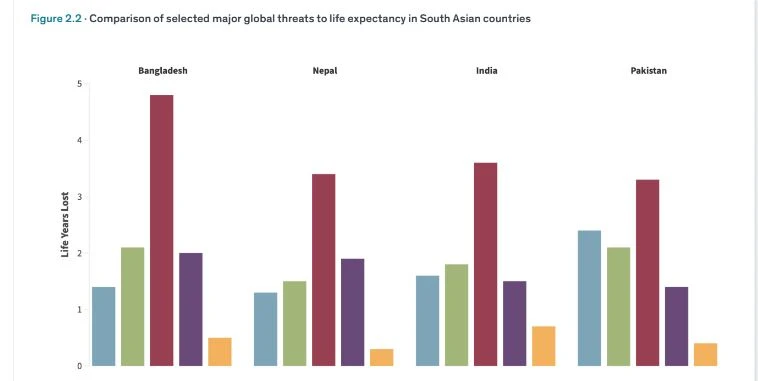
According to the report, the average PM2.5 levels in South Asia were 41.4 μg/m3 in year 2022, which is far above than the WHO guideline of 5 μg/m3.
If reduction in air pollution could be sustained in region, it would gain a significant gain in life expectancy of nearly eight months.
GLOBAL IMPACT OF AIR POLLUTION
The burden of air pollution remains heavy worldwide, particularly in countries with weaker or unenforced air quality standards.
The AQLI report indicates that 94 out of 252 countries and territories globally have national standards, yet 37 of them are failing to meet these benchmarks, affecting 30 percent of the world’s population.
If these countries were to adhere to their own air quality standards, the average life expectancy in these regions could increase by 1.2 years.
In Africa and the Middle East, particularly in cities like Cairo and Lagos, also experience hazardously high levels of air pollution, which drastically shortens life expectancy.
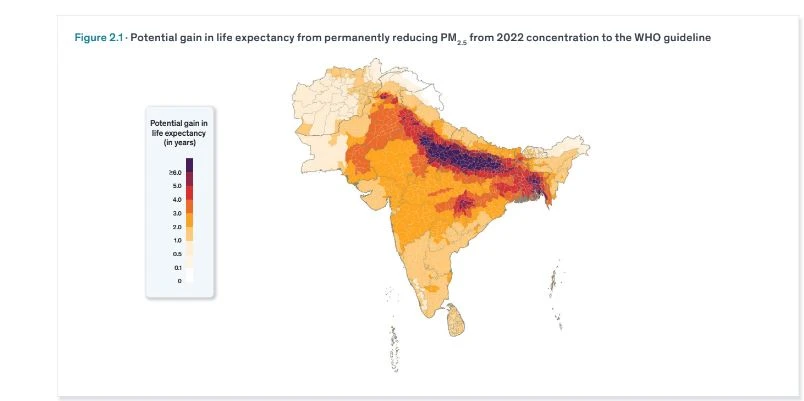
Despite significant efforts to reduce pollution China, cities like Beijing and Shanghai still grapple with air quality issues that threaten public health.
This global health crisis, as highlighted in the AQLI report, underlines the urgent need for stronger environmental policies and better enforcement to protect people’s health.
In Pakistan, the situation is particularly dire, and without immediate and effective action, the health and longevity of millions of citizens will continue to be at risk.
-

 Pakistan 2 days ago
Pakistan 2 days agoMajor reasons of UAE visa ban for Pakistanis revealed
-

 Regional 2 days ago
Regional 2 days agoSibi by-election: PPP's Sardar Kohiyar Domki wins
-

 Business 2 days ago
Business 2 days agoGold glitters again in Pakistan after surge in global markets
-
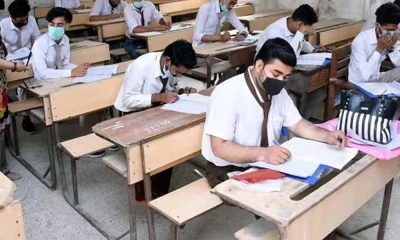
 Pakistan 9 hours ago
Pakistan 9 hours agoGrace marks increased from 3 to 5 in exams
-

 Sports 6 hours ago
Sports 6 hours agoPunjab announces e-bikes for every student
-
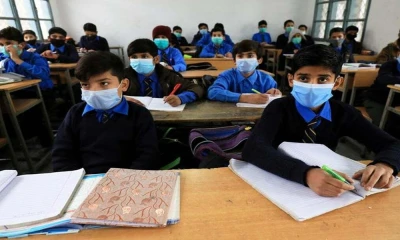
 Pakistan 2 days ago
Pakistan 2 days agoRawalpindi Division: All educational institutions to reopen from Tuesday
-
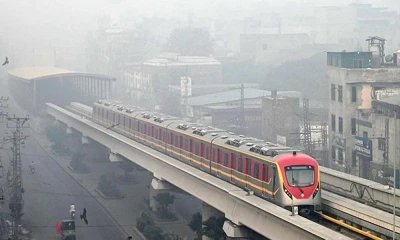
 Weather 1 day ago
Weather 1 day agoSmog intensity reduces in Punjab
-

 World 11 hours ago
World 11 hours agoHeavy snow in Britain, schools closed, trains delayed




























